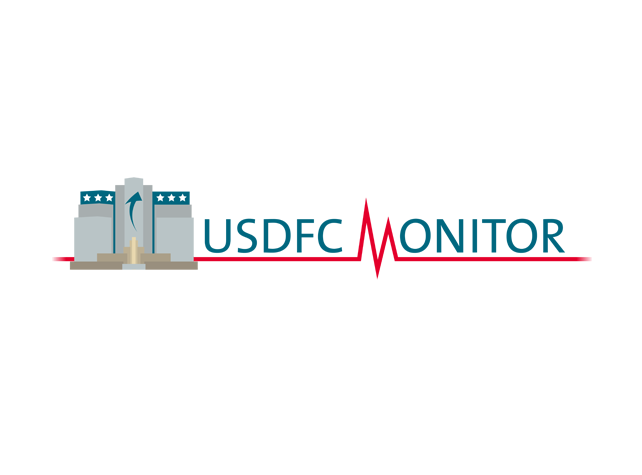A full 879 days into the Trump administration—more than 500 with a nominee awaiting confirmation —and following five changes in acting leadership with four different acting agency heads, the Millennium Challenge Corporation finally has a new CEO. The US Senate voted to confirm Sean Cairncross yesterday afternoon.
Senate-confirmed leadership at MCC comes not a moment too soon. MCC’s acting leadership maintained a solid funding base for the agency, carried out two country eligibility cycles, signed three new compacts, closed out three others, and launched two new threshold programs. But MCC is navigating some new waters and has needed political leadership to help it chart its course. In particular, two pieces of legislation passed over the last 18 months have significant implications for both MCC’s own programming as well as the agency’s role in the US development policy landscape.
Developing MCC’s first regional investments
Last year, the African Growth and Opportunity Act and Millennium Challenge Act Modernization Act gave MCC the authority it needed to pursue regional investments and tackle critical cross-border constraints to growth. But regional investments aren’t easy and investing across borders will require MCC to adapt almost all parts of its business model, from country selection, to project identification, to project implementation structures. The agency has already gotten the ball rolling. In December the agency’s board selected five neighboring West African countries (Benin, Burkina Faso, Cote d’Ivoire, Ghana, and Niger) with which MCC could start to explore the possibility of one or more cross-border investments. (Note: not all five countries will necessarily be party to an eventual regional investment, but MCC needs a country to be eligible before it can devote resources to exploring where regional opportunities exist and whether neighboring countries are likely to work well together.) The agency has since identified several promising opportunities in the transportation, water, and energy sectors and is working through how to apply its cost-effectiveness criteria and risk identification to regional programs. MCC expects to submit its recommendations for which programs to pursue to its management later this summer. It’s important that Cairncross will be on board to help guide these trailblazing decisions.
As CEO, Cairncross will also need to weigh in on key questions about how to approach the chosen investments. These will include:
-
What will the local implementation unit(s) look like? What structure will best manage multi-country complexity? And since MCC is likely to lend its support to a regional project that’s already in the works (or at least already being planned), how will the agency work with existing implementation structures?
-
How can MCC best structure policy reform incentives across multiple parties? Like all MCC compacts, the agency’s regional investments are expected to include a policy reform component. Discussions of policy reform can be tough since reforms typically produce both winners and losers. Regional programs will magnify these challenges since the costs and gains from reform are unlikely to be shared equally.
-
How will MCC deal with suspension or termination of individual countries in a multi-country program? While we all hope serious policy backsliding won’t become an issue, history shows that over a third of selected countries have had their eligibility or programs either ended or substantially cut due to declines in policy performance and/or indicator scores (one of the five potential regional partners—Niger—was at one point one of them). The decision to pull MCC funds is always a difficult one; it is likely to be even more challenging when countries other than the country of concern would be impacted.
Defining MCC’s relationship with the new US Development Finance Corporation
For the last 15 years, MCC was the new kid on the US development policy block. Come October, that will no longer be the case. Last fall, Congress passed the BUILD Act which transforms the Overseas Private Investment Corporation (OPIC) into a new full-service US International Development Finance Corporation (DFC). The BUILD Act calls for coordination with other US development agencies, including MCC, and requires that DFC consider MCC’s constraints to growth analyses as a resource for understanding the institutional and regulatory environment for private sector activity in the countries where it is considering projects.
MCC’s mission is to help advance private sector-led growth in partner countries. This makes it directly relevant to the goals of the new DFC, and it’s been a missed opportunity for MCC not to have had a high-level seat at the interagency table as the new development finance agency gets off the ground. Not only does MCC have important, hard-won advice for tackling the institutional challenges that come with being a start-up, MCC’s focus on growth and strong blended finance toolkit suggest there will be a number of important opportunities for MCC and the DFC to strategically engage one another to increase private sector activity in select countries. Fortunately, while he was awaiting confirmation, Cairncross spent some time working at OPIC. This will be important experience to bring to bear as he takes on the role of encouraging MCC coordination with the new DFC and assessing how to increase the two agencies’ complementarity while maintaining fidelity to MCC’s country-led, evidence-informed, growth-focused model.
Furthermore, now that MCC is no longer the newest innovative development agency in town, Cairncross will need to advocate well for his agency, ensuring MCC stays relevant, maintains its reputation for effectiveness, and preserves the bipartisan support it has long enjoyed.
Disclaimer
CGD blog posts reflect the views of the authors, drawing on prior research and experience in their areas of expertise. CGD is a nonpartisan, independent organization and does not take institutional positions.







